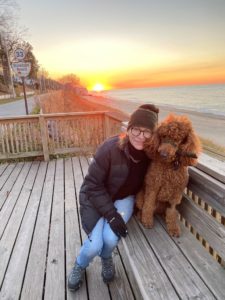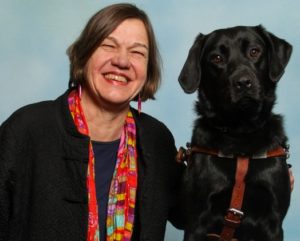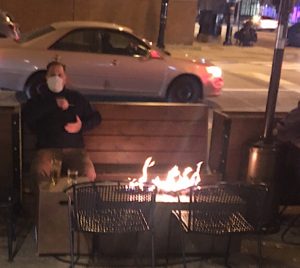Mondays with Mike: Stay safe out there
December 14, 2020 • 7 Comments • Posted in Mike Knezovich, Mondays with MikeIn the midst of despair and divisiveness, there’s one thing we can agree on: the COVID vaccines represent a remarkable accomplishment. Like every medical/technical achievement, the vaccines were enabled by earlier breakthroughs. Moderna’s, for example, relied on a new messenger RNA technique. Expect advances to keep coming. For example, using CRISPR technology, a COVID test that uses a cell phone camera to detect COVID and produce a result with 30 minutes.
As remarkably fast as it’s all coming, it all can’t come fast enough. Meantime, I’m hearing and reading one thing again and again from the health experts I’ve come to trust: As tempting as it is, we better not let our guard down. (Any more than we unfortunately have already.)
It’s going to be dicey as more and more of us start thinking about venturing out and into indoor spaces. I don’t know that there’s going to be a “coast clear” announcement that we can trust.
As part of my work at PHIUS (Passive House Institute US), I did come across some information that may help people decide whether a space they’re in is safe. Buildings that meet our performance standard employ constant, low level ventilation. Equal amounts of air exit and enter at the same rate, constantly. There is no kicking on and off. Ingeniously, the exhaust air and intake air pass by a heat exchanger without mixing, allowing the outdoor air to scavenge heat energy from the exhaust air.
That ventilation is a good way to prevent COVID loads amassing to dangerous levels. During a recent webinar for our constituents, a manufacturer rep from a ventilation equipment company showed a way, if and when the time comes when people must or want to be indoors at establishments, to determine if the space is safe.
You need a carbon dioxide meter (not a carbon monoxide detector). It works like this: CO2 is a kind of proxy for COVID build up. The greater the CO2 level in a room, the worse the ventilation. That CO2 is the product of people breathing, and so, if there are lots of CO2 particles in a space, then there are lots of other particles that are products of breathing. I’ve done some research and the following guidelines seem very solid.
- Outdoor air has 400 ppm (parts per millions) CO2 levels
- A well-ventilated room will have 800 ppm or less.
- Anything more than 800? Run away.
I think well-ventilated businesses should install these things so people can assure themselves (or not) that it’s safe.
I’m hoping I find one under the tree this year, but I think I’ll be gifting it to myself.




